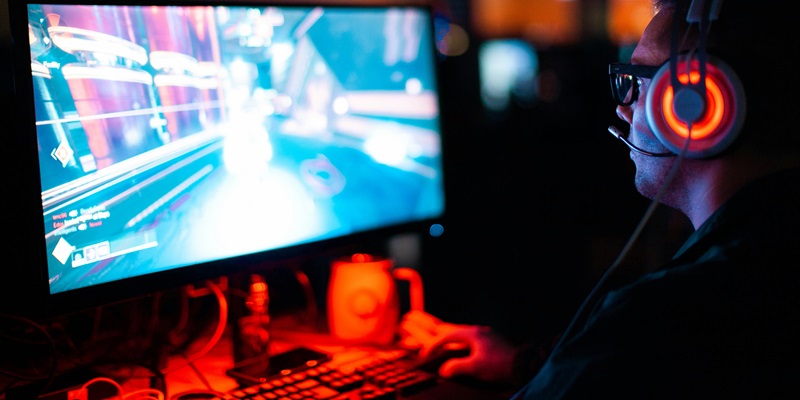The gaming arena is at a pivotal juncture with the adoption of blockchain technology, a fusion set to revolutionize gameplay, property rights, and revenue models. Blockchain’s immutable record-keeping brings enhanced security and transparency that could transform gamers’ experiences. It lays the groundwork for verified digital identities, ensuring that transactions within games are both trustworthy and fair. Moreover, it grants players genuine ownership over their virtual assets, which can be traded or sold in a transparent and secure marketplace. This integration is not only expected to enrich player engagement but could also open up new economic avenues within the gaming ecosystem by fostering a decentralized model of in-game economies and asset control. As these technologies intertwine, the potential for innovation in game design, user interaction, and economic systems within virtual worlds is immense and gaining momentum.
Empowering Players through Blockchain
Blockchain technology equips gamers with unprecedented control over their in-game assets, allowing them to trade and monetize these commodities freely. Players can now experience a heightened level of realism and stake in their digital pursuits, all within secure environments that prevent fraud and promote transparency. With blockchain, every transaction and transfer is made transparent, providing an immutable record that cannot be altered or disputed. This level of clarity fosters a safe space for gamers, where trust is built into the system, enabling them to focus on the gameplay rather than the security of their virtual possessions.
The decentralized nature of blockchain obviates the need for intermediaries, significantly cutting down on the possibility of data breaches. This secure framework encourages players to engage with gaming platforms confidently, knowing their digital profiles and transactions are guarded against tampering. By removing the central point of failure, blockchain creates a system where player data and assets are distributed across a network, giving individuals the autonomy and assurance needed to invest in and enjoy the gaming experience fully.
Economic Implications for the Gaming Industry
Blockchain’s integration into gaming is poised to revolutionize the industry’s economy, turning in-game assets into viable financial investments. This technology promises more secure and anonymous transactions, addressing longstanding data security issues in the gaming sector. With blockchain, digital assets in games can be traded and collected like real-world valuables, adding a new layer of economic activity. It opens up opportunities for gamers to earn real income through their digital collections, as these items can increase in value over time. Moreover, blockchain’s transparency and security could attract serious financial involvement, fueling a dynamic market and transforming gaming into a potentially profitable endeavor. This evolution signals a shift from a simple pastime to a legitimate marketplace, reshaping the gaming landscape.
The Future of Interoperable Gaming Platforms
As blockchain technology becomes more integrated with gaming, there is a move towards creating a seamless experience for players. This includes the development of advanced smart contracts and token systems which allow for the interoperability of assets across various games and networks. The facilitation of this interoperability is not a trivial technical achievement—it requires meticulous coding and strategic partnerships but promises to deliver an enhanced gaming reality where the borders between diverse gaming ecosystems are virtually erased.
The evolution of blockchain gaming aims to enable unprecedented connectivity between different platforms, making the use of assets fluid across multiple games. This enhances the user experience by removing barriers and widening the scope for engagement and interaction within the gaming sphere. The players’ avatars, items, and achievements can traverse multiple gaming realms, allowing for continuity that enriches storytelling and gameplay, creating a cohesive and immersive virtual life.
Market Growth and the Adoption Challenge
The blockchain gaming sector is set to soar, with projections indicating its value will hit significant numbers by 2028. As gaming platforms increasingly embrace blockchain technology, the industry is ripe for growth. This surge is fueled by the convergence of gaming, economics, and advanced tech, each propelling the others forward.
Despite this promising future, hurdles like the complexity of blockchain for newcomers and skepticism from conventional game developers persist. To overcome these, the industry must focus on user-friendly experiences and educational tools to make blockchain more accessible. Traditional gaming figures must recognize the value blockchain brings. Striving for simplified interfaces and clearer information, the sector can accelerate blockchain adoption and cast a wider net for its player base. As these challenges are navigated, blockchain gaming is poised for sweeping transformation and broader acceptance in the gaming world.
Innovation and User-Driven Game Development
Blockchain does not simply enhance security and transactions within the gaming industry; it also serves as a catalyst for creativity in game development. Gamers are no longer passive consumers but active stakeholders influencing the direction and economy of the games they play. This new role empowers them to contribute ideas, vote on game features, and participate in development decisions through decentralized autonomous organizations (DAOs), reshaping the relationship between players and developers.
With the advent of blockchain, the concept of a participatory economy within gaming is materializing. Players contribute not only to the virtual economies within games but also to the actual design and development, fostering a communal approach to gaming that highlights shared success and innovation. This collaborative ecosystem nurtures a sense of ownership among players, who can see the tangible impact of their contributions on the game’s environment and its evolution over time.

